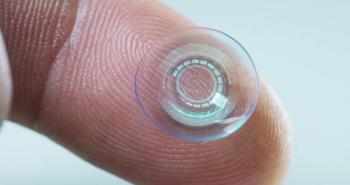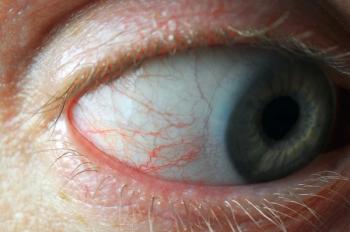
Sunglasses collection goes green with Eastman, Swiss Eyewear Group partnership
The companies have released a new INVU collection of sunglasses made from upcycled plastic featuring ultra polarized lenses.
Global specialty materials company Eastman and eyewear manufacturer Swiss Eyewear Group (SEG) are ringing in 10 years of SEG’s INVU eyewear collection with a partnership and new eco-friendly shades.
The two companies collaborated to release a new collection of sunglasses featuring ultra polarized lenses and made with Eastman Tritan™ Renew, a product made from upcycled plastic waste, for its frames without sacrificing quality. Specifically, each of the 9 frames in the collection is made with 50% recycled content approved by the International Sustainability and Carbon Certification System, which performs like traditional plastic directly produced from natural gas or crude oil.1 Each pair of sunglasses also comes with an eyewear zip case and cleaning cloth made from recycled plastic bottles. By upcycling plastic from landfills, Eastman can turn 13 tons of plastic waste into a million pairs of sunglasses by utilizing Tritan™ technology.2
"We are delighted to work with Eastman to ensure that fast-moving, affordable fashion and environmental responsibility are not mutually exclusive,” said Jerry Dreifuss, CEO of SEG, in a news release. “With the launch of this new sustainable collection, INVU continues to deliver on its promise to offer cutting-edge eyewear while prioritizing sustainability."
SEG chose Tritan™ Renew because it is “a unique material that combines exceptional, environmentally responsible qualities without imposing manufacturing restrictions,” according to the news release. Tritan™ Renew material is made by taking used plastic waste and breaking it down into molecular building blocks. From there, the plastic is transformed into a granulate thermoplastic resin. Frames in the collection are shatter resistant, hypoallergenic, and BPA free.2 “It is the first sustainable material that offers state-of-the-art optical properties while allowing freedom in design, lens selection, and coloring,” Dreifuss said in the release.
Other materials manufactured in the Tritan™ series are defined as a “copolyester,” and are developed for a wide variety of industries. For instance, Eastman Tritan™ GX100 copolyester is often used for heavy-gauge sheet end uses, such as sneeze guards, outdoor signs, and heat-sensitive applications in hospitals, office buildings, schools, and retailers. Other Tritan™ materials that are glass-filled are used in products such as consumer housewares and electronics, both with and without food contact. Amorphous copolyesters are vegetable-based and were developed specifically for infant care, such as the manufacturing of baby bottles.3
Additionally, Eastman is planning to open the world’s largest material-to-material molecular recycling facility at its headquarters in Kingsport, Tennessee. The facility will have the capacity to recycle approximately 110,000 metric tons of plastic annually. Eastman has a goal of recycling 225,000 tons of plastic waste annually by 2030.
"Eastman is glad to collaborate with Swiss Eyewear Group, a global leader in fashion eyewear known for its commitment to innovation and quality,” said Rachel Oakley, eyewear segment leader for Eastman’s plastics division. “We are proud SEG has chosen Tritan™ Renew as they embark on a more sustainable eyewear journey. By joining our partners utilizing the wide capabilities of molecular recycling technologies, SEG ensures that Tritan™ Renew remains a reliable and environmentally responsible choice accessible to the greatest number of eyewear consumers."
References
Eastman, Swiss Eyewear Group collaborate to launch INVU 10th anniversary collection with Tritan Renew. Swiss Eyewear Group. Press Release. Published January 23, 2024. Accessed January 29, 2024.
Sustainable sunglasses. INVU by Swiss Eyewear Group. Updated 2024. Accessed January 29, 2024. https://www.invueyewear.com/sustainable
Tritan family of products. Eastman. Updated 2024. Accessed January 29, 2024. https://www.eastman.com/en/products/brands/tritan/products
Newsletter
Want more insights like this? Subscribe to Optometry Times and get clinical pearls and practice tips delivered straight to your inbox.















































